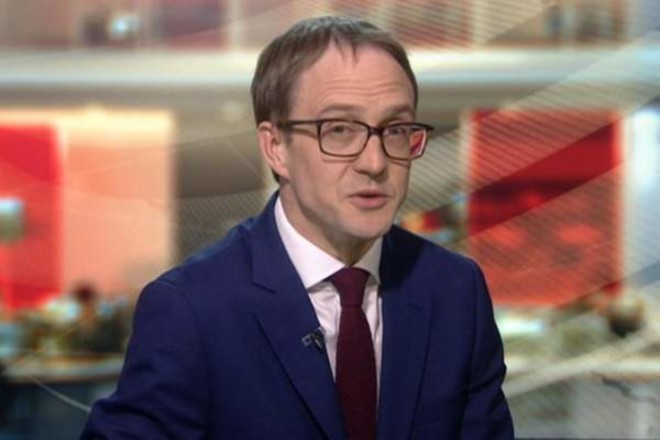Such was the dilemma confronting the BBC’s Chris Mason recently. You might say, don’t quit the day job (he’s usually the shrewd political news hound chasing a lead in Westminster). But on this weekend, he has the early news-reading shift; a live inject into the BBC’s flagship show that also just happens to have a stand-in presenter in Andy Marr’s absence.
Technical problems, the line cited, or: “These gremlins, I’m afraid are continuing and I’ll have to hand back to you,” as Chris says to camera, after not seeing any more of the bulletin.
So the bottom falls out of a running order folder… AutoScript freezes – deletes the entire download? Or simply stories dropped to claw-back time; the programme already ten minutes late on air. This beats the four-minute 10 O’Clock News delay, with Huw Edwards sat in suspended animation and the studio’s software system going ‘slightly crazy.’
But then so much news is simply dark and depressing: Notre-Dame fire, Sri Lanka terror attacks… or just the continuum of Brexit, in headache grey. What a reprieve no news could be!
No news might be great if there’s a reputation at risk, threatened by repeated comments. But it can be alarming if you fear the worst, or you hope for better news and receive nothing for days.
Getting a message from a friend in Colombo came as relief on Easter Sunday, an hour before Sri Lankan authorities shut down social platforms.
We are so reliant on the news-cycle that we don’t realise we are until a technical problem – a ghost in the machine – grabs our attention. Mine all too acutely since TV news was a previous life.
Andrew Marr’s predecessor on Sunday mornings was the late great David Frost. But working with the best there are still the dilemmas. Missing a cue is one thing, a flight is quite another. But Sir David is on the next flight from Barbados, is the message. Concorde is met by the car (of course it is). And it’s a close call. While others would make it to the studio at less than 30 seconds to air, forgetting an ear-piece – or earrings.
Twenty-years-ago I returned from holiday to be met at the UK Border with the shocking news of a friend and colleague shot dead in west London. The Mail’s headline on a folded frontpage. The border guard more concerned with my ashen-face than a passport image.
On the far side of the world the domestic news-cycle was thwarted. CNN and BBC World covering another Balkan war. But TV news or the beach? It was never a tough choice.
These days we are ever in touch, constantly keeping up-to-date – impatient for news information to the extreme. We remember a world before apps and mobile phones, but now we don’t leave our desk without them.
It is only fair to put the shoe on the other foot; consider those waiting on us or checking for updates.
A quick response in a crisis can make the difference. For a journalist that can mean meeting a deadline. To a relative it’s a lifeline. In the silence of our delay or distraction we can’t always know.
Crisis Response Manager










